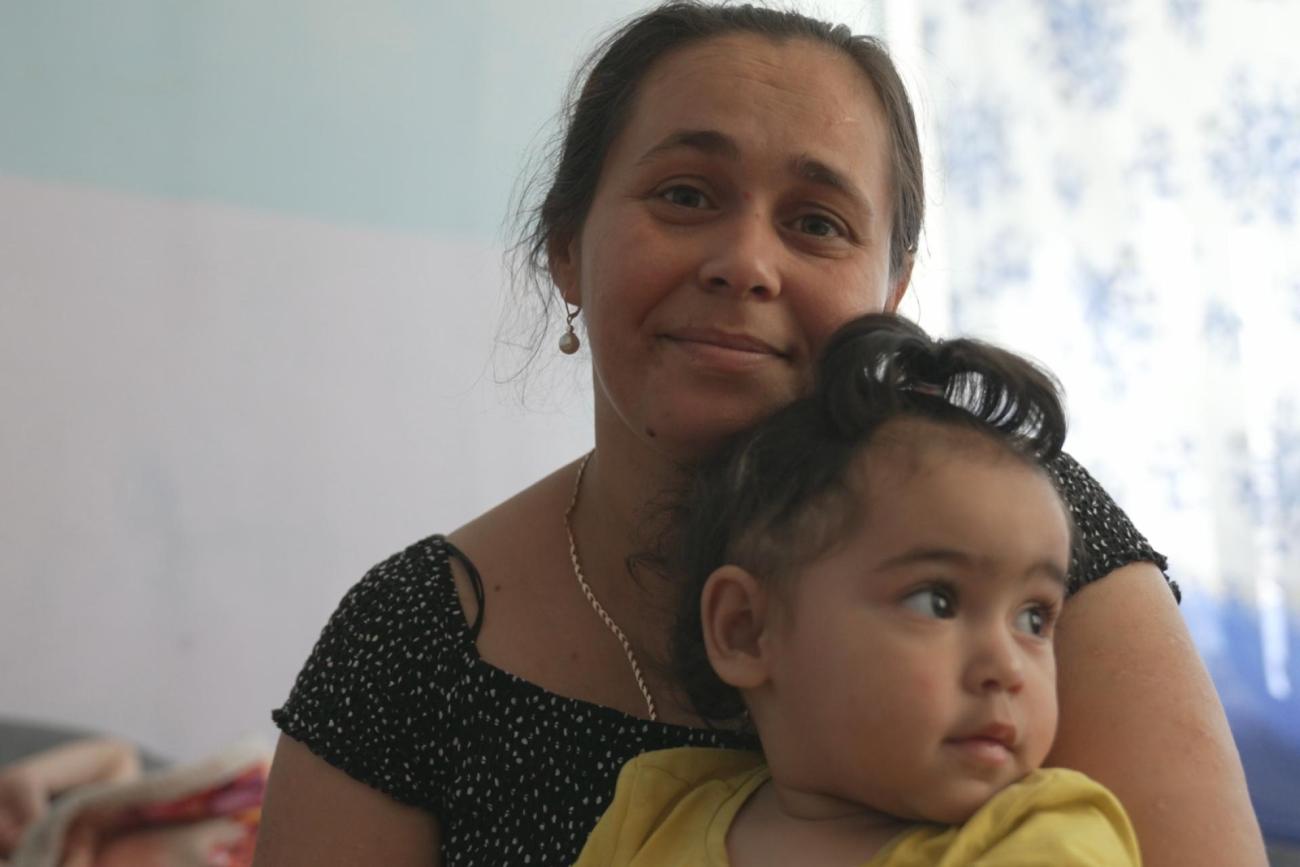"We received health care, medications, hygiene kits, and food supplies”

Thanks to UNICEF support, refugee children and their families, hosted in Refugee Accommodation Centers, continue to access essential primary health care service
When war forces you to leave your entire life behind and embark on a journey to safety, nothing brings more peace and hope than knowing your family has free access to essential health services, counseling, accommodation, and protection. This is also the story of Oxana, a mother of three children from Ukraine, who found safety at one of the Refugee Accommodation Center in Chisinau. Here, she and her children have access to all the essential resources they need to feel safe and optimistic about their future. "I am truly grateful to be here," says Oxana. "We have been living in fear for so long, hearing sirens daily."
Oxana knows she can consult a health specialist every day, and her children have immediate access to quality medical services, regardless of the situation. For a mother compelled to fight for her children's lives and safety, that is all that truly matters. "We needed assistance after the war broke out. Upon arriving at the Refugee Accommodation Center, we received health care, medications, hygiene kits, and food supplies," says Oxana.
To guarantee the right to health, hygiene, and sanitation for refugee children and their families in Refugee Accommodation Centers in Chisinau, UNICEF, in partnership with the Ministry of Health and CUAMM, has established temporary health facilities at five RACs. As a result, refugee families can receive medical support whenever they need it. Children and adolescents have access to vaccinations, regular medical check-ups, basic health information, and essential medicines, and hygiene products.
According to the most recent data from August 2022, more than 250 residents of the Refugee Accommodation Centers, including about 100 children, participated in an immunization campaign against infectious diseases and benefited from screening sessions. More than 1,500 women and children received essential medicines, and more than 1,100 mothers, fathers, and caregivers received informational materials and counseling services on health-related topics, immunization, and nutrition. Meanwhile, children were integrated into recreational activities in a safe environment.
"This is a safe space where kids feel good and calm. As a mother, that is the most important thing for me. The healthcare workers are supportive, and we know we can reach out to them anytime," says Oxana. "Currently, for example, my youngest child suffers from pharyngitis and has a fever. I notice she has difficulty breathing from time to time; fortunately, she can receive timely and quality care here. We are in good hands, and for that, I am grateful."
In addition to enhancing the capacity of medical institutions, UNICEF, in collaboration with the Ministry of Health and CUAMM, has organized and conducted training on managing neonatal emergencies and resuscitation for healthcare workers from seven medical institutions in Moldova. Additionally, eight regional medical institutions have been equipped with essential equipment and supplies to manage neonatal emergencies effectively.
UNICEF has continuously supported the healthcare system in the Republic of Moldova, also ensuring free access to health services for refugee children and mothers coming to Moldova from Ukraine. UNICEF has allocated 50 million lei to provide free medical services for children and mothers from Ukraine. Furthermore, medical facilities, like the Mother and Child Center in Chisinau, have been equipped with additional resources to improve their medical services. Since the onset of the war in Ukraine, more than 106,000 Ukrainian refugees, half of whom are children, have found safety in the Republic of Moldova.



